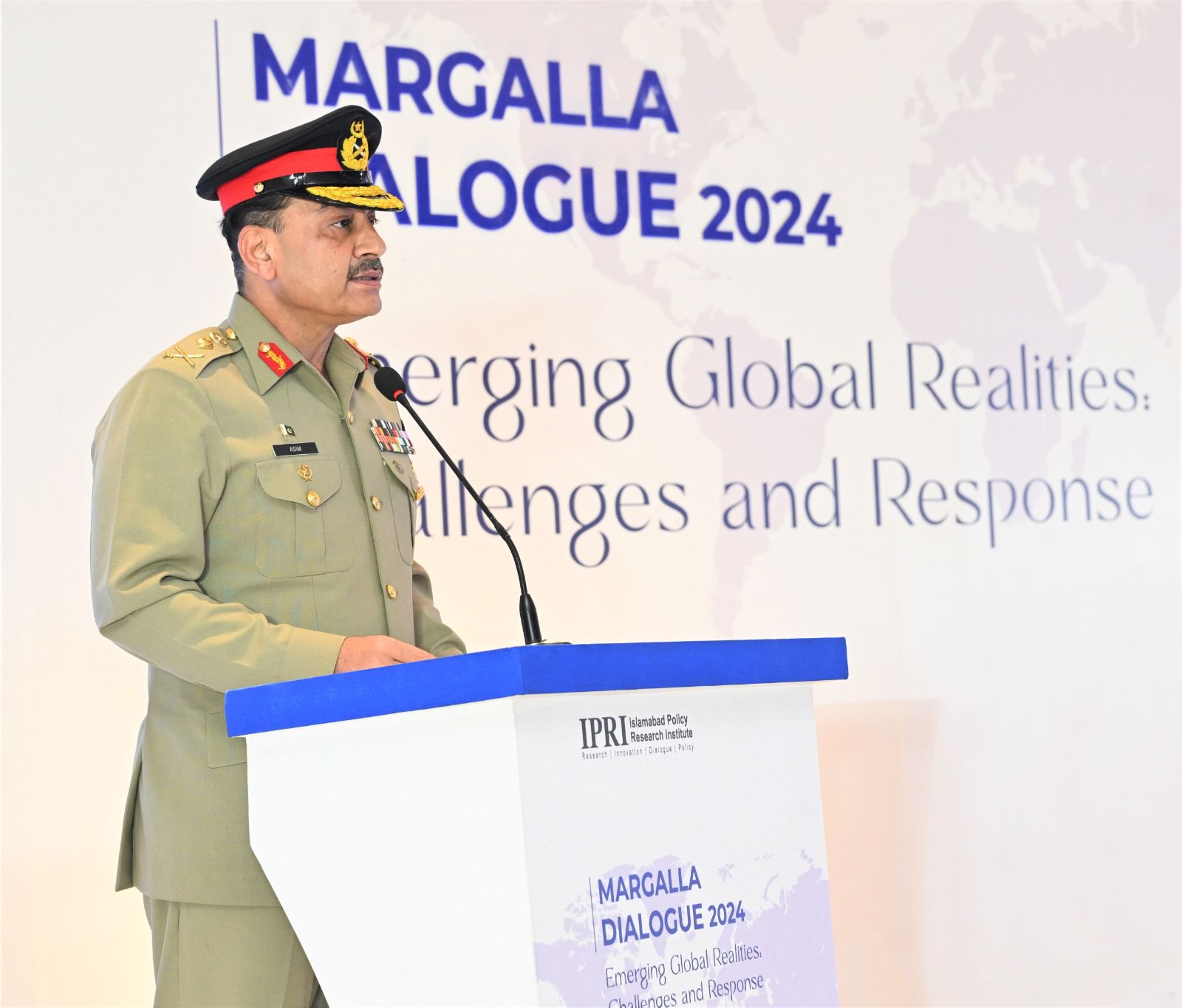By Dr. Shazia Anwar Cheema
Pakistan has historically walked a delicate tightrope in its foreign relations, especially when it comes to the two global powers—the United States and China. Today, this balancing act has become more complex due to the intensifying rivalry between Washington and Beijing. At the center of these opposing powers stands Field Marshal Asim Munir, who, since assuming command, has played an active role in recalibrating Pakistan’s foreign policy through military diplomacy and strategic engagements.
“Field Marshal Asim Munir’s diplomatic maneuvers reveal a careful balancing act”
Pakistan’s geopolitical positioning makes it an indispensable partner in both Washington’s and Beijing’s regional strategies. With China, Pakistan enjoys an “all-weather friendship.” On the other hand, Pakistan’s defense and financial sectors have historically leaned on Washington for military aid, training, and multilateral support in institutions like the IMF and World Bank. This dual dependency requires a leader with a steady hand, and Field Marshal Asim Munir has demonstrated the ability to maintain equilibrium, ensuring Pakistan neither drifts entirely into one camp nor alienates the other. He focused on re-establishing Pakistan’s credibility in Washington because Pakistan had been considered a ‘double game player’ by the U.S. establishment, which lost the war in Afghanistan and blamed Pakistan for its failures.
To repair trust, Munir has emphasized Pakistan’s role as a counterterrorism partner and a stabilizing force bordering Afghanistan, which has become a safe haven for global terrorism. During his meetings with U.S. leadership, including President Trump, he highlighted Pakistan’s continued commitment to combating terrorism and ensuring regional security. Furthermore, by aligning with U.S. concerns over regional militancy and engaging in counterterrorism dialogues, the Field Marshal has reassured Washington that Pakistan remains a reliable security partner but needs technical support to deal with the cross-border terrorism it is facing. At the same time, he has subtly presented economic opportunities, understanding that Pakistan’s financial stability is tied to U.S. influence in multilateral lending institutions. Washington’s tacit support during Pakistan’s IMF negotiations reflects the dividends of this diplomatic re-engagement.
“Field Marshal Asim Munir is projecting the defense capabilities of Pakistan, signaling strength without direct confrontation and through deterrence, sending a message to adversaries that Pakistan shall respond to any attempt of aggression by inflicting damage beyond their acceptable limits, so they must not follow the path of war”
While repairing bridges with Washington, Field Marshal Asim Munir has also ensured that Pakistan’s strategic partnership with China remains robust. Joint military exercises, intelligence sharing, and security frameworks under his leadership underscore a deepening bond with China. Moreover, he has highlighted Pakistan’s role as a bridge for regional connectivity, positioning CPEC not just as an economic lifeline for Pakistan but also as a strategic corridor for China’s global demands. By navigating between Washington and Beijing, he has ensured that Pakistan remains relevant on the global stage. His strategy of equilibrium, though difficult, is perhaps the only viable path for a country situated at the heart of South Asia’s geopolitical fault lines.
Field Marshal Asim Munir’s diplomatic maneuvers reveal a careful balancing act:
• With Washington, he underscores Pakistan’s indispensability in counterterrorism and financial stability.
• With Beijing, he deepens defense and economic ties, portraying Pakistan as China’s most reliable regional ally.
Instead of aligning entirely with either camp, he projects Pakistan as a state pursuing a policy of “strategic equilibrium.” This approach is vital for a country that cannot afford to alienate either pole in an era of great power competition. Western media, after the Indian military defeat in May 2025, is talking about Field Marshal Syed Asim Munir’s brilliant military diplomacy, calling it the beginning of a new era of diplomatic successes for Islamabad. The Indian defeat provided Pakistan with an opportunity to reclaim its prestigious identity that it unfortunately lost during the last four decades, as it had been infamous for drugs, “Jihadi Johns,” and radicalization. The country that had been the worst victim of terrorism was portrayed as a ‘land of terrorists’ through sheer propaganda that, unfortunately, had not been contested effectively by governments in the past.

After the defeat of India during Marka-e-Haq, U.S. media is writing that Field Marshal Asim Munir is an “Iron Man,” while Chinese media is referring to him as ‘a pillar of national stability.’ His military diplomacy is directly linked with territorial integrity, internal security, and regional peace and prosperity. He is using military relations, resources, and strategies for cooperation, negotiations, and agreements with countries of the Middle East, Central Asia, the Caucasus, as well as European power grids. His style of multilayered military diplomacy reminds one of the classical designs of the diplomacies of the Greek and Roman eras. During those eras, military diplomacy functioned as a vital tool for fostering alliances, persuasion, multilateral military agreements, and cooperative strategies for enhancing security through collaboration, preventing conflicts, and fostering mutual understanding and trust among international and regional powers.
Middle East & Gulf Engagements:
Saudi Arabia (multiple visits, 2024–2025)
• Met Crown Prince Mohammed bin Salman.
• Focused on Pakistan–Saudi defense cooperation, counter-terrorism collaboration, and Pakistan’s role in regional security.
• Discussions also covered investment under the Saudi–Pakistan Supreme Coordination Council.
United Arab Emirates (2024–2025)
• Meetings with Sheikh Mohamed bin Zayed Al Nahyan (UAE President).
• Dialogue centered on defense, joint military training, and economic cooperation.
Qatar (2024)
• Interaction with the Emir of Qatar.
• Military diplomacy focused on training exchanges and regional peace.
China (2024, 2025)
• Meetings with President Xi Jinping and senior PLA leadership.
• His tours covered multilayered issues such as CPEC security, intelligence sharing, military modernization cooperation, and regional counter-terrorism efforts.
United States (2024–2025)
• Met Secretary of Defense Lloyd Austin and senior U.S. officials; discussed counter-terrorism, Afghan stability, Indo-Pacific security, and U.S.–Pakistan defense cooperation.
• Held meetings with U.S. President Trump, Secretary of Defense Lloyd Austin, and CIA Director William J. Burns.
• Participated in a high-level security dialogue in Washington.
• Met with U.S. National Security Advisor Jake Sullivan.
• Interacted with senior members of the U.S. Senate Foreign Relations and Armed Services Committees.
Turkey (Ankara, 2024)
• Met President Recep Tayyip Erdoğan.
• Enhanced defense partnership talks, including defense industry collaboration (drones, naval ships, training programs).
Iran (2024)
• Meetings with President Ebrahim Raisi and military leadership.
• Focus: border security, counter-terrorism, and regional stability post–Middle East crises.
United Kingdom (2024–2025)
• Interaction with UK military leadership and officials.
• Strategic defense dialogue, intelligence cooperation, Afghan resettlement security, and training exchanges.
Central Asia (Uzbekistan, Kazakhstan, 2024)
• Meetings with heads of state and defense ministers.
• Cooperation on counter-narcotics, regional terrorism, and the Afghanistan security situation.
Multilateral Engagements
• Shangri-La Dialogue (Singapore, 2024): Represented Pakistan in security discussions with Asia-Pacific leaders.
• Islamic Military Counter Terrorism Coalition (IMCTC) engagements, Riyadh.
Field Marshal Asim Munir is projecting the defense capabilities of Pakistan (defeating India in May and its effective war against terrorism), signaling strength without direct confrontation and through deterrence, sending a message to adversaries that Pakistan shall respond to any attempt of aggression by inflicting damage beyond their acceptable limits, so they (the enemies) must not follow the path of war. His messages of peace for regional economic growth and international cooperation are instruments of power for Pakistan, and the world is now appreciating them.
 Note: The writer is a Doctor of Philosophy in Semiotics and Philosophy of Communication from Charles University Prague. She can be reached at shaziaanwer@yahoo.com
Note: The writer is a Doctor of Philosophy in Semiotics and Philosophy of Communication from Charles University Prague. She can be reached at shaziaanwer@yahoo.com
